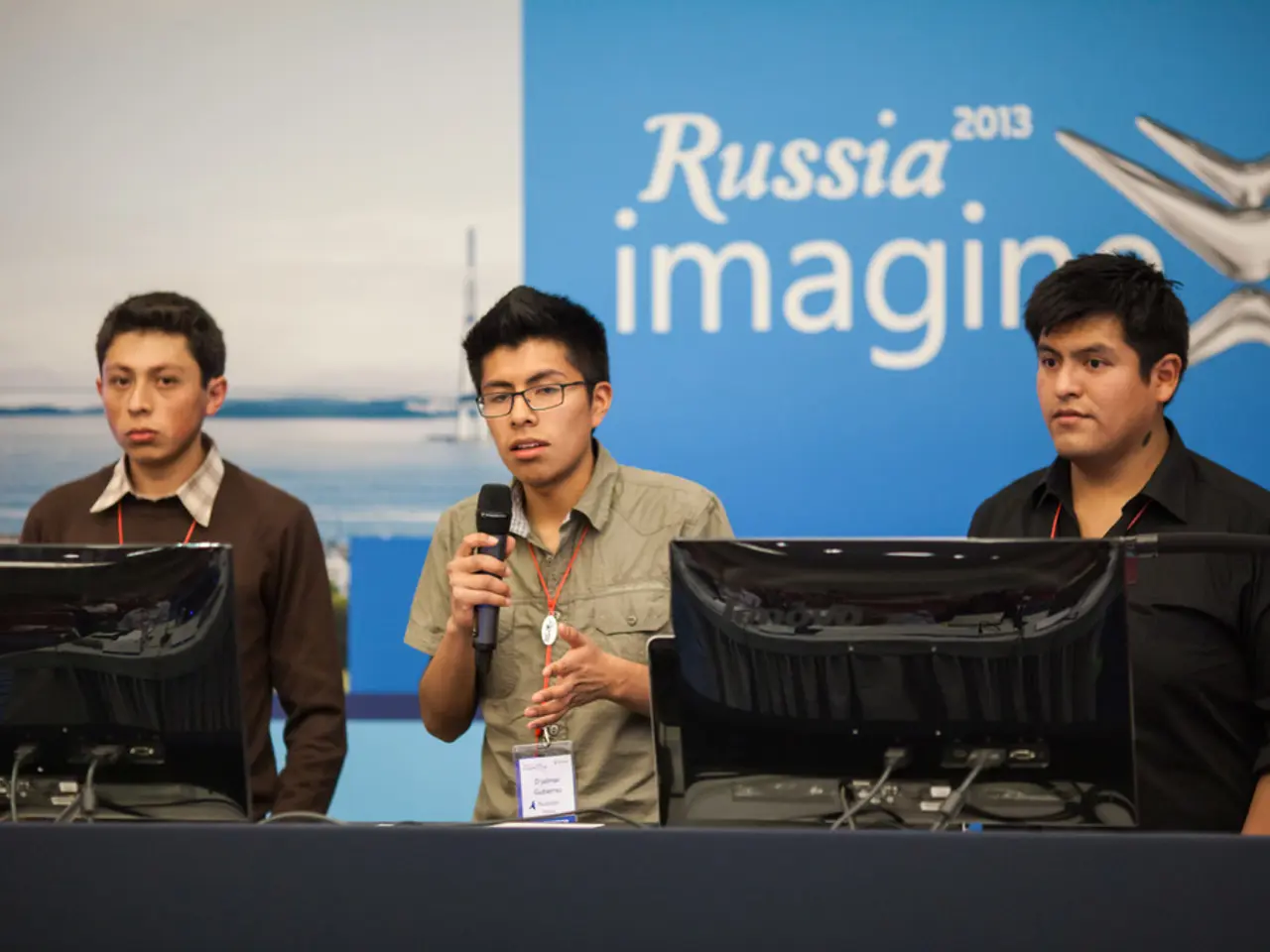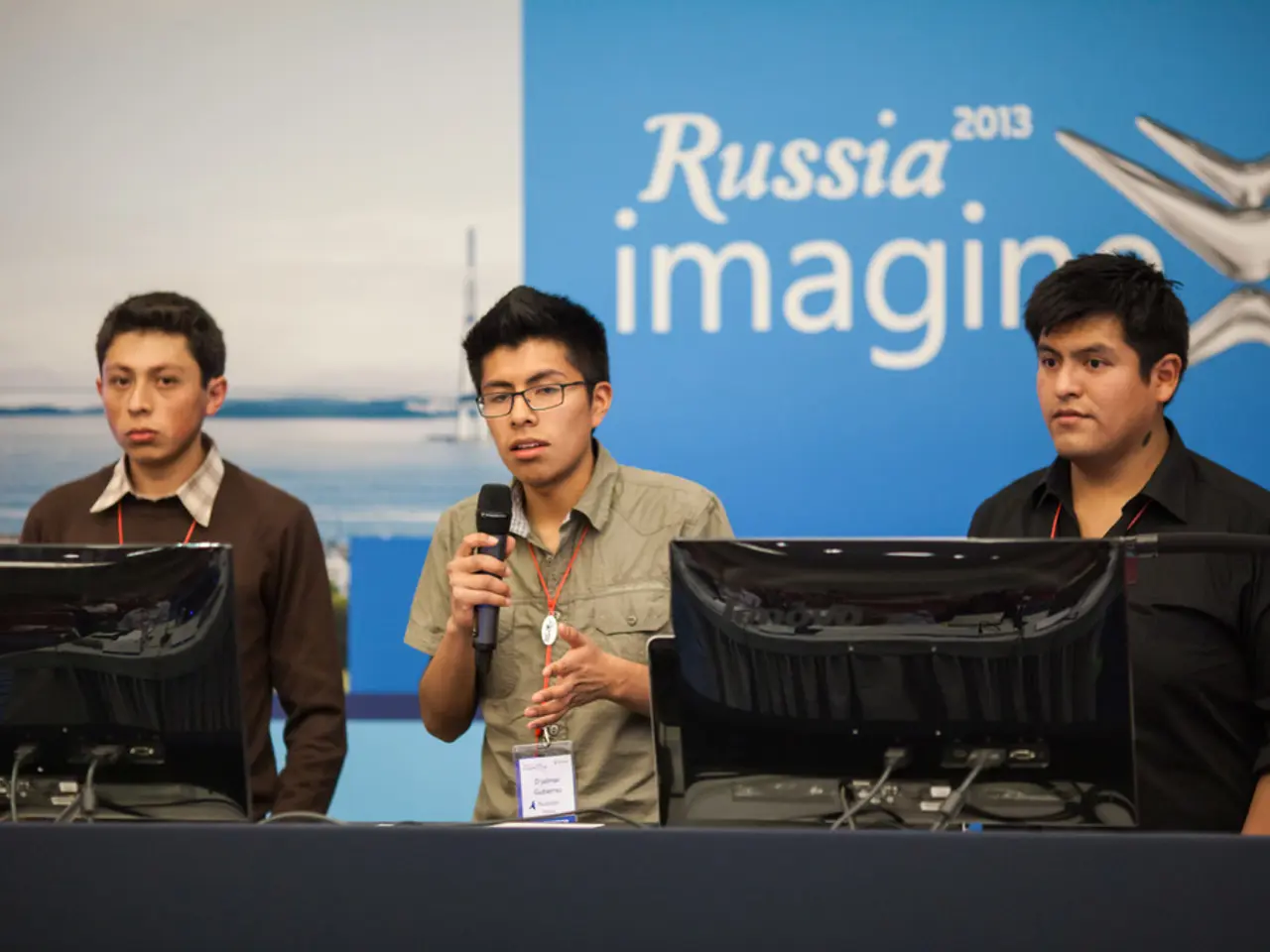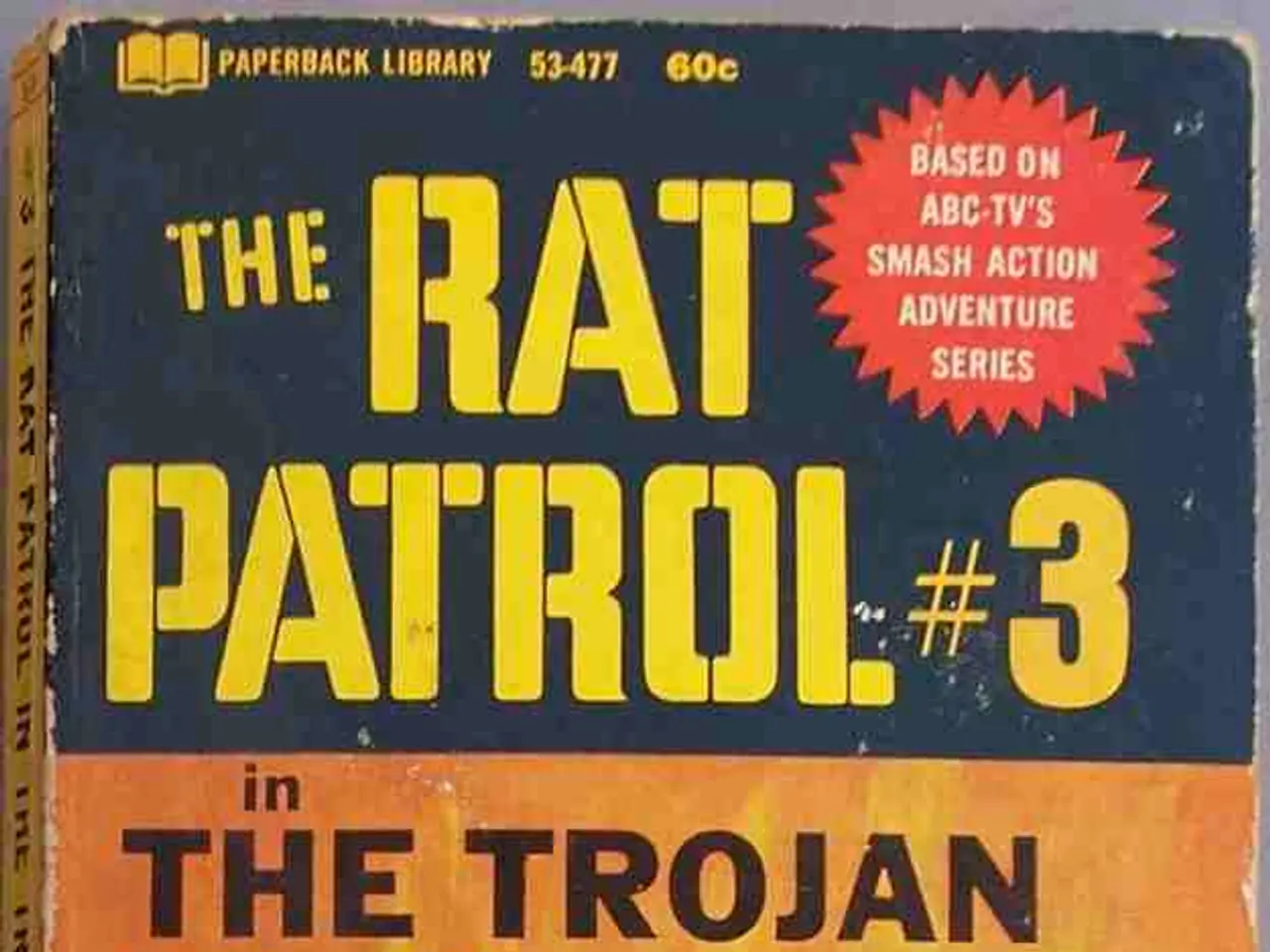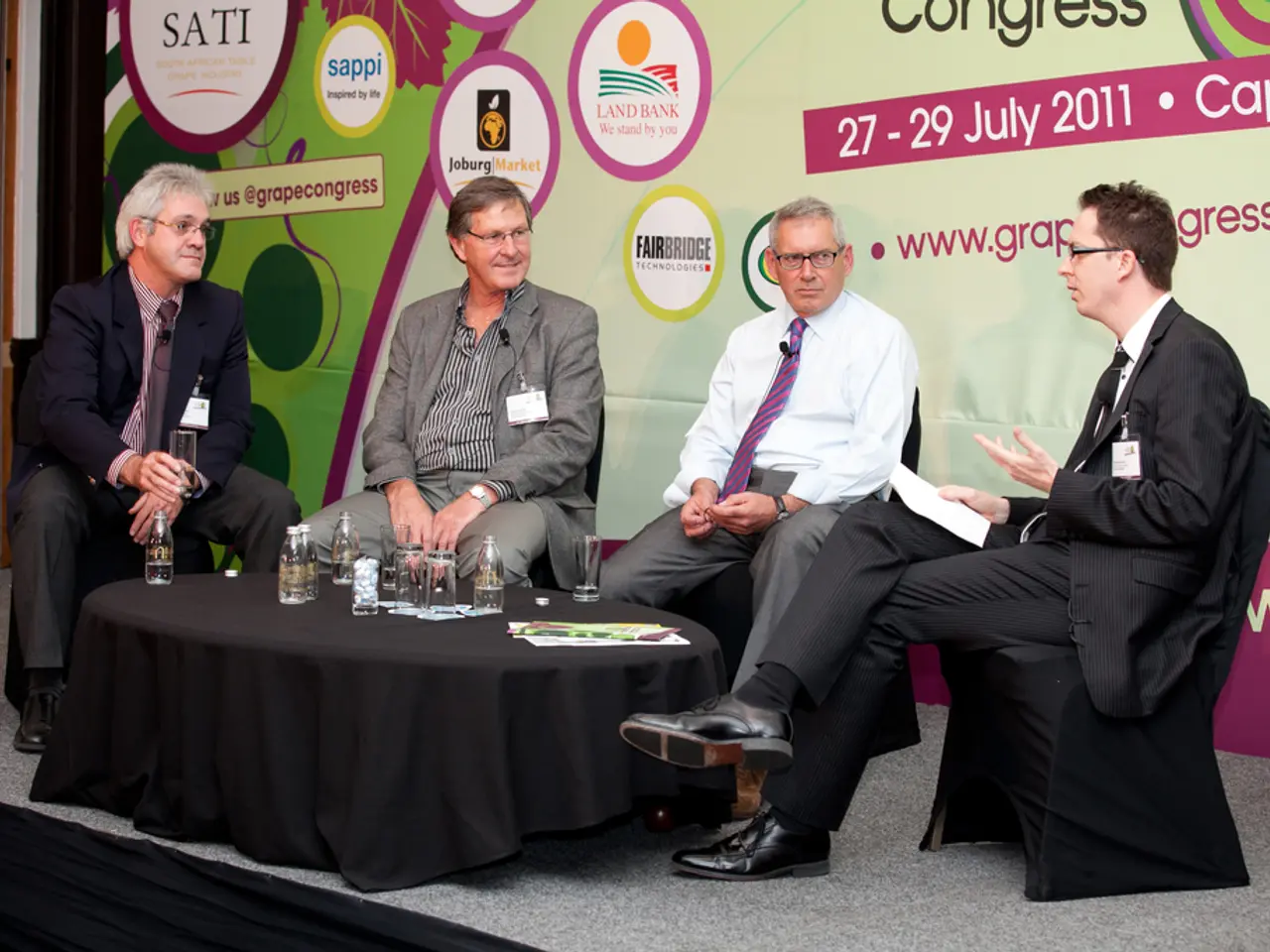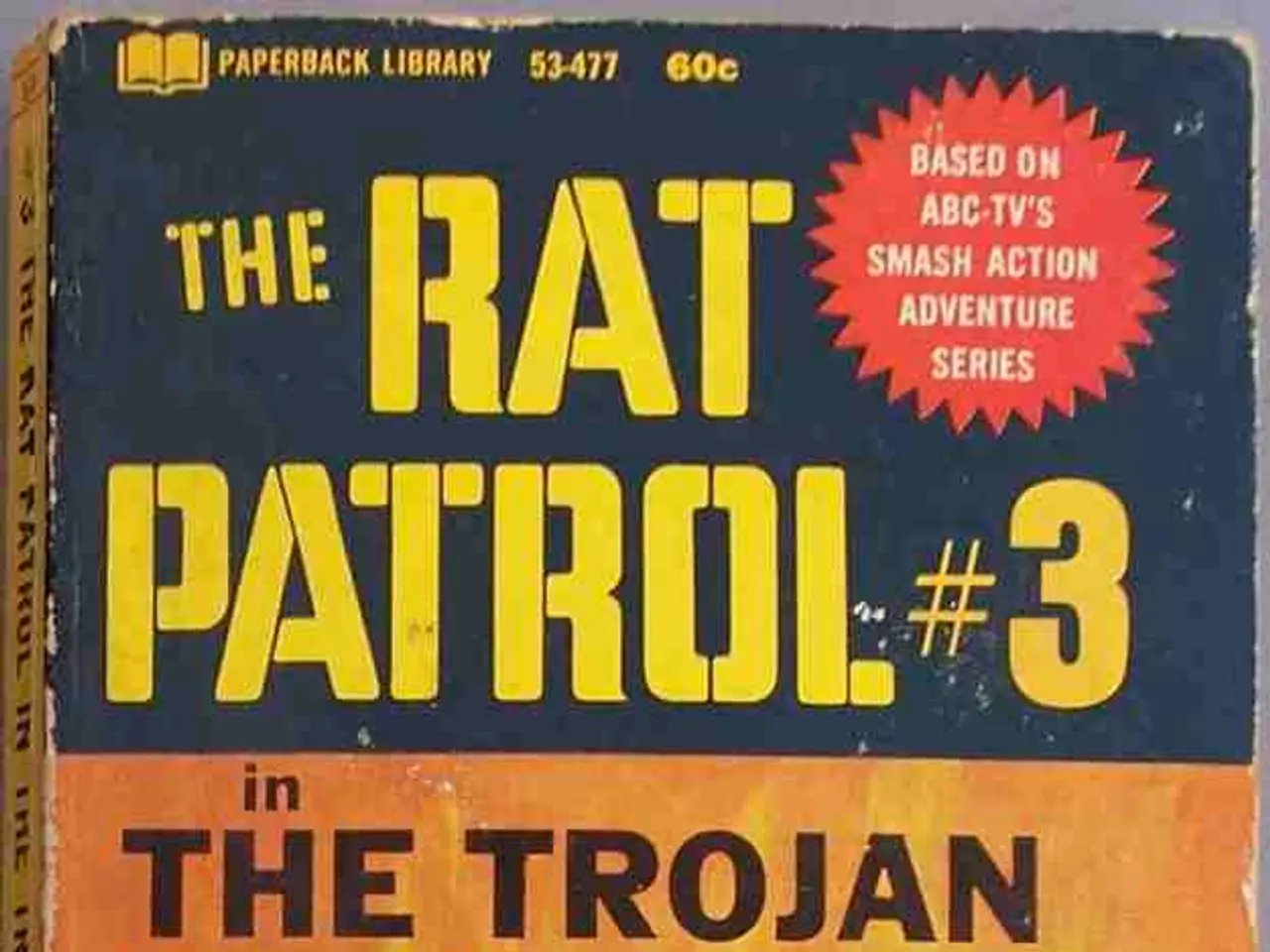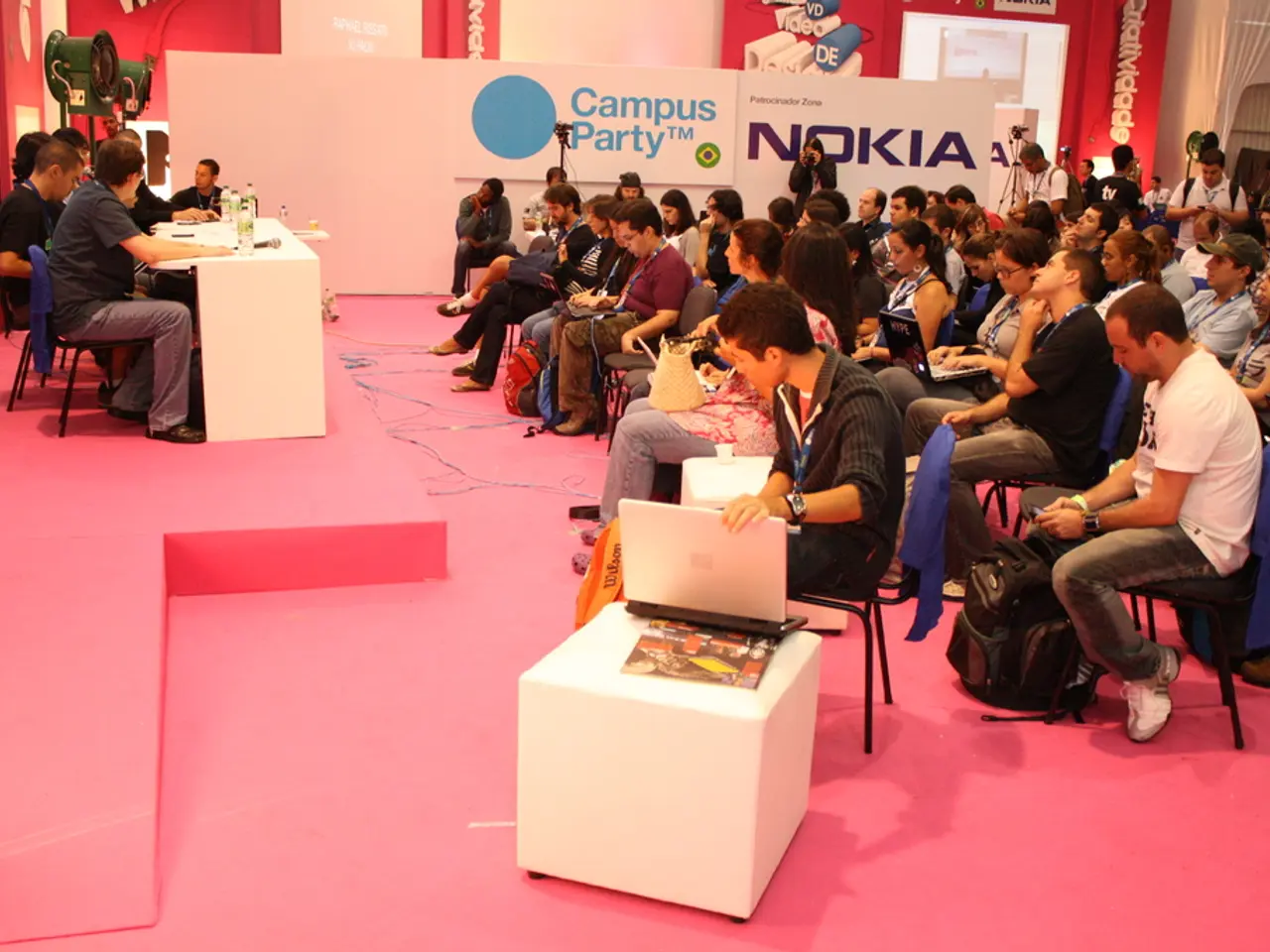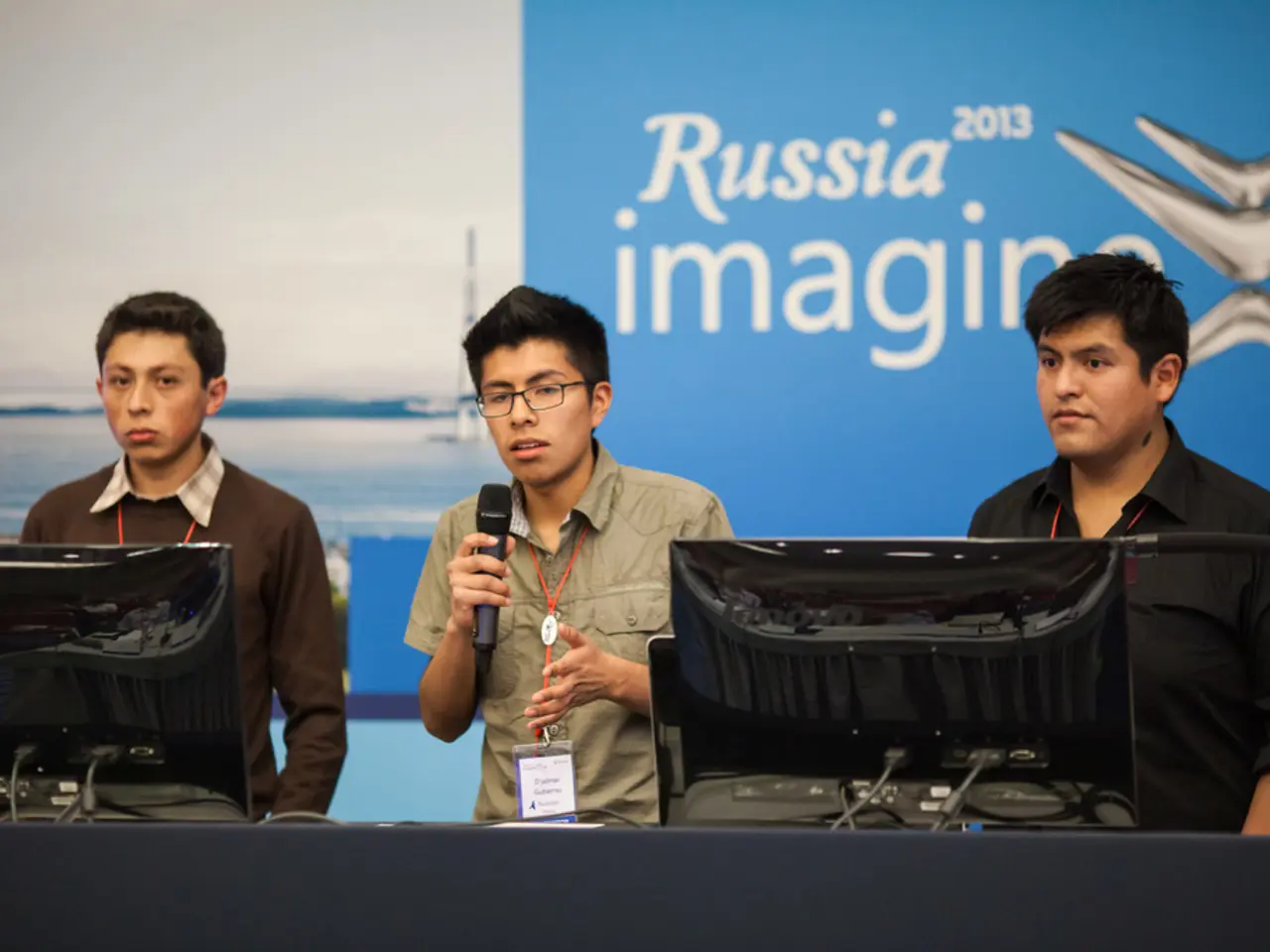Conflict between Russia and Ukraine: Transformed from controversy-ridden Russian statesman to Trump's adversary
In the realm of international politics, the name Dmitry Medvedev, the former president and prime minister of Russia, has once again found its way into the headlines. As the Deputy Chairman of Russia's Security Council, Medvedev maintains a secondary yet symbolically important political role within the inner circle of Russian security and political strategy.
Medvedev's recent online activity, particularly his interactions with the United States and Ukraine, has been a subject of interest and concern. His provocative statements on social media and Telegram, which include insults, territorial claims, and nuclear threats, have raised eyebrows both at home and abroad.
In a recent online exchange, Medvedev referred to Westerners as "bastards and degenerates," reinforced Moscow's claims over Ukrainian territory by stating, "Ukraine is, of course, Russia," and even alluded to Russia's "Dead Hand" nuclear retaliation system. These online provocations, while taken seriously abroad, are generally viewed within Russia as Medvedev’s efforts to project loyalty and relevance amid his diminished political standing.
Medvedev's online rants reached a new level when he suggested that countries might provide Iran with nuclear warheads, following U.S. air strikes on Iranian nuclear sites. This comment led to a sharp reaction from former U.S. President Donald Trump, who ordered nuclear submarines to strategic regions as a precaution against these threats.
Analysts view Medvedev's recent rhetoric as an attempt to maintain relevance or curry favor with Russian President Vladimir Putin rather than evidence of real influence. Despite speculation, most experts agree that Medvedev lacks an independent power base or serious prospects as Putin’s political successor.
The reasons behind Medvedev's change in behavior are a topic of debate. Some suggest that his transformation into an online troll began after he was unceremoniously sacked in 2022 and given the Security Council job, a sinecure for demoted allies. Others propose that Medvedev is repeating what Soviet leader Nikita Khrushchev had done to survive under his ruthless predecessor Joseph Stalin, or that he is a warlike individual who has been given more freedom to express his aggression by Putin.
Regardless of the reasons, it is clear that Medvedev serves as a mouthpiece for Kremlin-aligned messaging, using his online platform to express statements related to nuclear weapons without discrediting Putin's good peacekeeper's name.
In conclusion, Dmitry Medvedev's online provocations should be viewed as a symbol of Kremlin allegiance and personal political survival rather than an indication of independent authority. As the political games between Moscow and Washington continue to unfold, Medvedev's role remains a fascinating and significant aspect of the international political landscape.
Breaking news: Dmitry Medvedev's online rants, filled with warlike rhetoric and nuclear threats, have entered the realm of war-and-conflicts, adding another layer to the complex politics between Russia and the United States. Moreover, these provocations can be seen as a means for Medvedev to maintain his symbolic role within Russian security and political strategy and to project loyalty to President Vladimir Putin.
